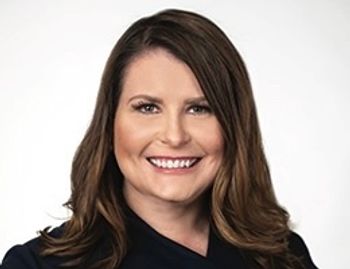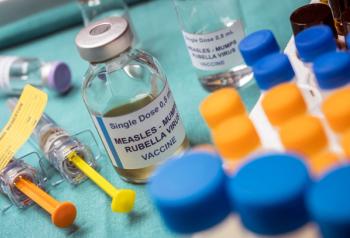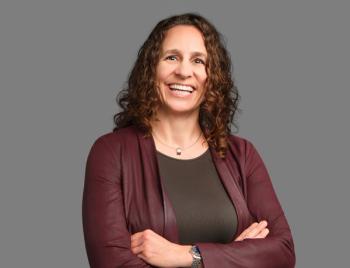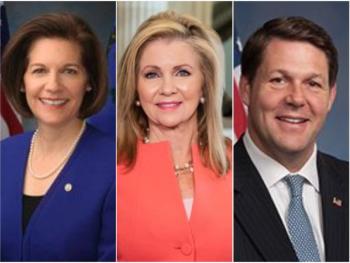
Explaining the suit to block vaccine policy changes: ‘We’ve had enough’
Several groups have sued Health Secretary Robert F. Kennedy Jr. Dr. Georges Benjamin, executive director of the American Public Health Association, says they want to protect Americans.
Healthcare organizations have condemned some of Robert F. Kennedy’s actions since he took over the U.S. Department of Health & Human Services, and now they are taking legal action.
Several groups, including the American Academy of Pediatrics, the American Public Health Association, and the American College of Physicians,
Dr. Georges C. Benjamin, executive director of the American Public Health Association, talked with Chief Healthcare Executive® about the effort to overturn some of Kennedy’s actions.
“We just think we've had enough,” Benjamin says. “You know, at some point, the medical establishment has to take back our primacy over good science and good health. And unfortunately, Mr. Kennedy has not demonstrated the capacity to be a good health secretary, and I think he's leading us down a pathway that's putting patients at risk.”
“We've simply had enough of that and felt that the only way to stop these guys and to make them reestablish normal behavior and normal medical practice and standard of care is to go through the courts,” he says. (See part of our conversation in this video. The story continues below.)
In filing the suit, the healthcare organizations cite the recent changes to vaccine guidance for COVID-19 vaccines and the overhaul of a key panel advising policies on vaccines. The federal government is no longer advising pregnant women and healthy children to get the coronavirus vaccine,
Benjamin says that Kennedy’s change in COVID-19 vaccine guidance is already having a negative impact.
“He has created an environment where we now are already seeing patients who are pregnant, not getting access to the vaccine,” he says, adding, “Pregnant women, by their very nature, have a degree of immunocompromise.”
Benjamin and other healthcare leaders also have criticized Kennedy’s remarks about healthy kids no longer needing the COVID-19 vaccine. “He's basically changing the vaccine schedule,” Benjamin says.
From the fall of 2020 through the spring of 2024, 234,000 children under the age of 18 were hospitalized with covid, according to an analysis of
‘A great deal of confusion’
Benjamin faults Kennedy for not providing clear and unambiguous guidance about the measles vaccine, even as the number of measles cases in the U.S. is the highest in more than three decades. Nationwide, 1,288 cases have been reported, according
“If you look at the measles outbreak as one example, eventually he finally said, ‘Yeah, you should get vaccinated,’” Benjamin says. But he says that is undercut by Kennedy advising people to talk to their doctors about whether it’s needed.
“The part about consulting your clinician is absolutely something that you would normally do, but he gave a degree of hesitancy about whether or not you should accept those recommendations,” Benjamin says. “And so that's created a great deal of confusion.”
The health secretary alarmed Benjamin and other healthcare leaders
“He got rid of a group of well-established experts with a lot of experience understanding vaccines, and he's recreated the panel with the degree of vaccine skeptics that have nowhere near the both academic or science experience of the previous panel,” Benjamin says.
He pointed to the panel’s vote to remove thimerosal from flu vaccines. Benjamin notes that thimerosal, a preservative, “has not been shown to have any risks in vaccines.”
“Now the good news is not a lot of vaccines have that particular preservative in it. The bad part of that is, of course, that it increases skepticism around vaccines and their safety and efficacy,” Benjamin says.
Susan J. Kressly, MD, president of the American Academy of Pediatrics, said the ouster of the vaccine advisory panel represents “an attack on the very foundation of how we protect families and children's health, and the consequences could be dangerous.”
“The American Academy of Pediatrics isn’t standing by. We’re stepping up,” she said in
In response to the suit, the health department sent a statement from Andrew Nixon, an agency spokesman, who said, “The Secretary stands by his CDC reforms.”
Speaking up
Benjamin has been vocal about his criticism of Kennedy.
He also pointed to the Centers for Disease Control and Prevention announcing
“Relitigating issues in which we have solved and know what isn't causing autism, diverts time, effort and money from the real solutions,” Benjamin says.
Many healthcare leaders have criticized Kennedy’s reorganization of the health department,
Benjamin says he’s encouraged that more health leaders are taking action to counter Kennedy’s changes to vaccine policies. “We're seeing more and more people speaking up,” he says.
“We are the national health strategists for our nation,” Benjamin says. “And we need to act like it.”






















































































